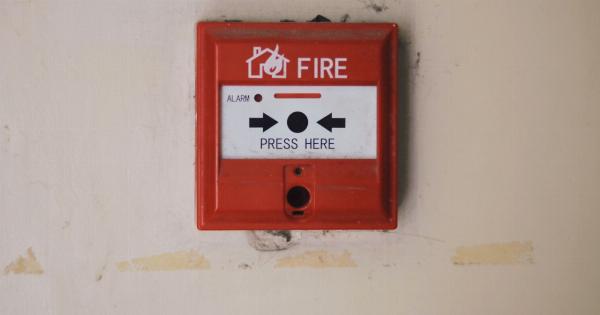Vomiting, also known as emesis or throwing up, is the forceful expulsion of stomach contents through the mouth. It can be a miserable experience, often accompanied by nausea, stomach pain, and overall discomfort.
While vomiting is a natural defense mechanism of the body to rid itself of harmful substances, frequent or persistent vomiting can be a sign of an underlying health issue that needs medical attention.
Tip 1: Stay Hydrated
When you vomit, you lose fluids from your body which can lead to dehydration. It is crucial to replenish these lost fluids and prevent dehydration. Sip small amounts of clear liquids like water, herbal tea, or electrolyte drinks.
Avoid drinking large volumes of fluids at once as it may trigger further vomiting.
Tip 2: Try Ginger
Ginger has long been used to relieve nausea and vomiting. It can be consumed in various forms such as ginger tea, ginger ale, or ginger candies. Ginger helps calm the stomach and reduces the feeling of nausea.
Additionally, it can also be taken in the form of ginger capsules or tablets, which are readily available in most drugstores.
Tip 3: Rest and Relax
When you’re feeling sick and experiencing vomiting, it’s important to get plenty of rest. Lie down in a comfortable position and try to relax. Avoid strenuous activities and give your body time to recover.
Tip 4: Eat Small, Bland Meals
After vomiting, your stomach may still be sensitive to food. Start with small, bland meals that are easy to digest. Stick to foods like toast, crackers, rice, boiled potatoes, or clear soups.
Avoid spicy, greasy, or heavy foods that may worsen your symptoms.
Tip 5: Use Acupressure
Acupressure is a traditional Chinese medicine technique that involves applying pressure to specific points on your body to relieve symptoms.
One such point is the P6 point, also known as the Nei Guan point, located three fingers’ width above your wrist crease on the inner side of your arm. Applying pressure to this point can help alleviate nausea and vomiting. You can use your thumb to firmly apply pressure or try wristbands designed to apply pressure to the P6 point.
Tip 6: Seek Medical Advice
If your vomiting persists for more than a day or is accompanied by severe abdominal pain, blood in vomit, dizziness, or other concerning symptoms, it’s essential to seek medical advice.
These may be signs of a more serious underlying condition, and a healthcare professional will be able to provide the appropriate diagnosis and treatment.
Conclusion
Vomiting can be an uncomfortable and distressing experience. Implementing these tips may help ease your discomfort and accelerate your recovery.





























